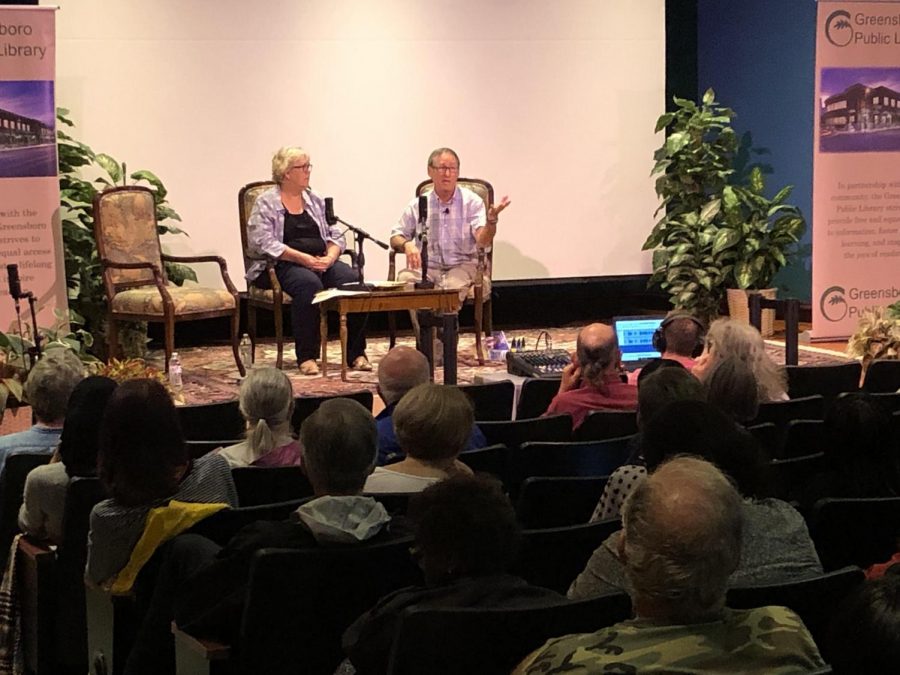‘Best of Enemies’ author kicks off Greensboro’s One City, One Book program
Beth Sheffield of the Greensboro Public Library and author Osha Gray Davidson discuss racial issues of the past and present at Greensboro’s One City, One Book kickoff event
On Saturday, Aug. 24 at the Greensboro History Museum, a discussion featuring author Osha Gray Davidson sparked conversation about racial issues between whites and people of color, specifically African Americans. Davidson shared details and answered questions about his book, “The Best of Enemies,” during the 6:30 p.m. kickoff event for Greensboro’s 2019 One City, One Book program.
This year’s One City, One Book selection is Trevor Noah’s “Born a Crime.” According to the Greensboro Public Library’s website, the library sponsors the program every other year along with its many community partners. 2019 marks One City, One Book’s ninth year and with the community’s help, library staff hope to bring Noah to Greensboro for a public appearance.
On Aug. 24, Davidson told his audience that today’s racial issues are no different than when “The Best of Enemies” was written in 1971. The book is about Ann Atwater, then a civil rights activist in Durham, N.C., and her polar opposite, C.P. Ellis, who once led the local Ku Klux Klan there. In “The Best of Enemies,” Davidson explores how Atwater and Ellis found common ground when it came to integrating schools in Durham. A 2019 movie based on the book was released in April, starring Taraji P. Henson as Atwater and Sam Rockwell as Ellis.
In response to the evening’s discussion, Sage Chioma, a Greensboro poet and Guilford alumna, said “it is wonderful that what I was taught at Guilford is actually now mainstream.”
When Chioma attended Guilford, “I actually felt like I was learning about my life for the first time in an academic setting and the truth was actually being revealed that whatever disadvantages I had, they were systemic and by design. . . .” she said.
“And so tonight, to see that whites are beginning to embrace whiteness as a social construct, in which they are also imprisoned by, is a great thing. Because, while learning this at Guilford, I just thought how the weight of it was heavy, that it wasn’t mainstream conversation, it wasn’t being talked about . . . .”
With her powerful and insightful views about racial issues in “The Best of Enemies” and racial issues of today, Chioma concluded that it is time for people of all backgrounds, especially youth, to move beyond discussion to taking action and creating change.







